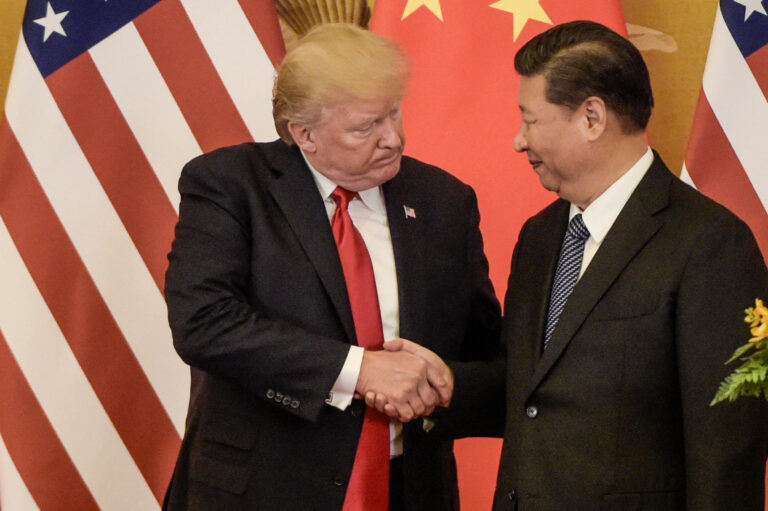Nvidia has ordered 300,000 new top-line computer chips from the Taiwan Semiconductor Manufacturing Company (TSMC) following a huge boost in demand from China.
The agreement over the H20 chipsets, which are some of the most advanced technology being produced in Taiwan’s industry-leading factories, comes in the same month that Trump reversed a ban that stopped Nvidia from selling to China over security concerns.
Newsweek contacted the Chinese Embassy and the White House for comment on this story via email.
Why It Matters
The January launch of DeepSeek, a Chinese-made AI model, , sparked what may have called a “cold war” over artificial intelligence development. Researchers developed DeepSeek with a fraction of the resources but managed to produce an AI capable of rivaling ChatGPT.
In April, the Trump administration barred top U.S. suppliers, like Nvidia, from selling topline silicon to China over “national security concerns.” The ban mirrored the 2022 CHIPS Act passed by former President Joe Biden, which increased semiconductor manufacturing in the U.S. while also clamping down on chip companies investing in China and Russia, the biggest competitors in the industry.
What To Know
The White House reversed its ban after barely three months, giving Nvidia the all-clear in July to resume sales with China. Nvidia founder and CEO Jensen Huang on July 14 said the U.S. government had assured him it would restore the licenses to sell H20s in China.
“General-purpose, open-source research and foundation models are the backbone of AI innovation,” Huang said. “We believe that every civil model should run best on the U.S. technology stack, encouraging nations worldwide to choose America.”
Half a month later, and Chinese demand for Nvidia chips has surged, with the U.S. company looking to replenish its stock with an order of 300,000 H20 chipsets from TSMC, one of the largest manufacturers in the world.

Getty Images
The return of Nvidia chips to the Chinese market will be a boon to the country’s rapidly expanding AI industry, but there’s concern that the U.S. could fall behind in an AI “race”, as OpenAI CEO Sam Altman describes it, using U.S. chips to do so.
In May, a report from the Georgetown University’s Center for Security and Emerging Technology shared with Newsweek found that two of China’s leading AI institutes, headquartered in Beijing, have established branches in Wuhan to cooperate on sophisticated alternatives to the large generative AI models.
The report described the new labs’ aim to “springboard to artificial general intelligence”, overtaking the U.S. by focusing on other forms of AI as opposed to the western focus on large statistical models.
What People Are Saying
Alexandra Mousavizadeh, CEO of Evident and creator of the Global AI Index, told Newsweek that there were two different approaches to China’s AI development: “You can continue to try and contain access to chips and close the walls off. While you’re doing that, you’re doubling down on investment into data infrastructure, supporting the development of AI in the U.S. and being first in that race,
“Or you open up completely and you say, ‘Look, it’s to the benefit of all that everyone has access to everything, because the collaboration between Europe, the U.S. and China in the past has been what has led to the ability to get to where we are today.’
A spokesperson for the Chinese Embassy told Newsweek: “China has consistently advocated that the development of artificial intelligence should adhere to principles that are human-centered and promote benevolence.
“China believes that AI development should be fair and inclusive, ensuring that all countries equally enjoy the benefits brought by AI, and has no intention of seeking dominance in this field.”
What Happens Next
China will continue to be able to purchase from Nvidia and other U.S. chip manufacturers unless the White House alters its policy.


